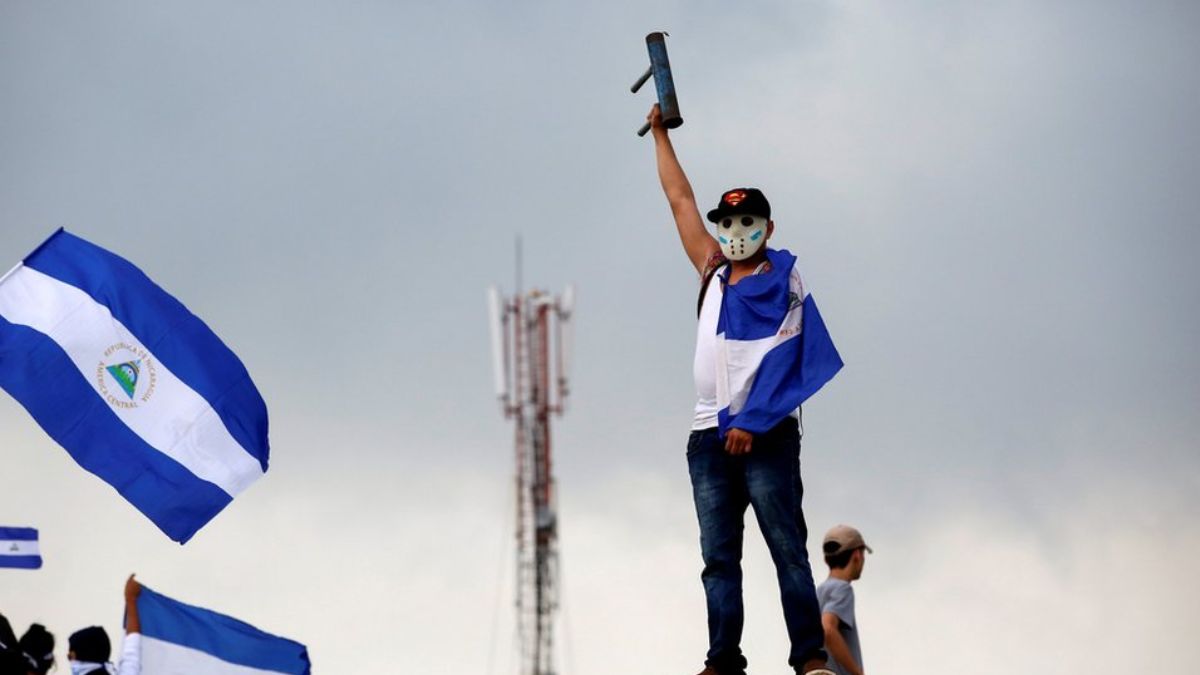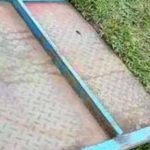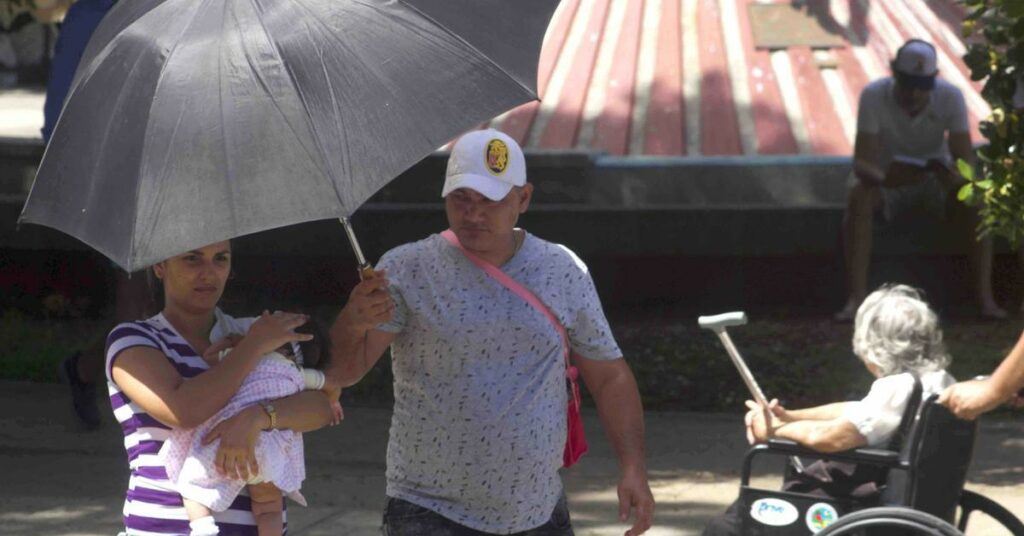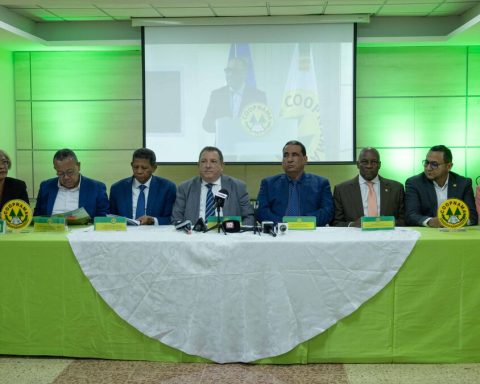What began as an ordinary day of classes for thousands of Nicaraguan university students became the beginning of a sociopolitical uprising, where hundreds of citizens, with their faces covered in blue and white, took to the streets to demand Daniel’s departure from power. Ortega and Rosario Murillo, the dictators who, to this day, still maintain their repressive arm against the people.
From using pencils and computers, the students began to take banners and mortars and prepare their throats to shout with all their might a “Let your mother give up!” on the sidewalks and roundabouts of the different departments of the country. First to protest against the reforms to the social security system, then to demand democracy, freedom and justice from the dictatorial couple.
Related news: Unamos commemorates April insisting on opposition unity, justice for murders and freedom for political prisoners
The Sandinista government’s response to the population’s complaints was attacks carried out by police and paramilitary forces, who caused the Nicaraguan population to shed blood and dress in mourning. The repressive climate persisted with physical, verbal and sexual violence, arbitrary arrests and the murder of more than 350 Nicaraguansas documented by the Inter-American Commission on Human Rights (IACHR).
Six years after the sociopolitical outbreak, the Ortega regime managed to silence the voices of the students, and the opposition in general, after denationalizing, banishing, imprisoning, persecuting, attacking and killing anyone critical of the actions of its mandate.
It is because of that Article 66 He contacted university students who lived during and after that historic event. April 18, 2018. They tell us how the Ortega dictatorship, directly and indirectly, affected the course of their student future after declaring the students as “their main enemy.”
A scar that does not fade
Nicaragua witnessed a sociopolitical crisis that left a “deep scar” on its people, especially university students. This is how it is described by one of the young people who witnessed and was part of the full rise of the demonstrations, and who agreed to provide his testimony to this media outlet under strict condition of anonymity.
At that time, the former student remembers that his classmates and classmates from other majors were “excited” to get involved in the social movement, “until the Police came to where we were protesting and fired several tear gas canisters at us. It was horrible. We didn’t have any weapons or how to defend ourselves and the moment everything happened we had to leave,” says the young man.
From that day on, independent news media began to document the increase in attacks and human rights violations that occurred during the self-organized protests and, for this reason, the young man’s mother insisted that he stop attending. «She didn’t want the police to kill me. Every time they announced that they were taking someone to prison or that they were killing a student, my mother imagined that I had been the one affected,” she commented.
The former university student admitted that he did not understand his mother’s concerns, “so I went to two more marches, but then ‘things got ugly’ because the Sandinistas were searching house by house for the ‘blue and white.’ “I was saved because my mother knew one of them and convinced him that I was never involved in anything.”
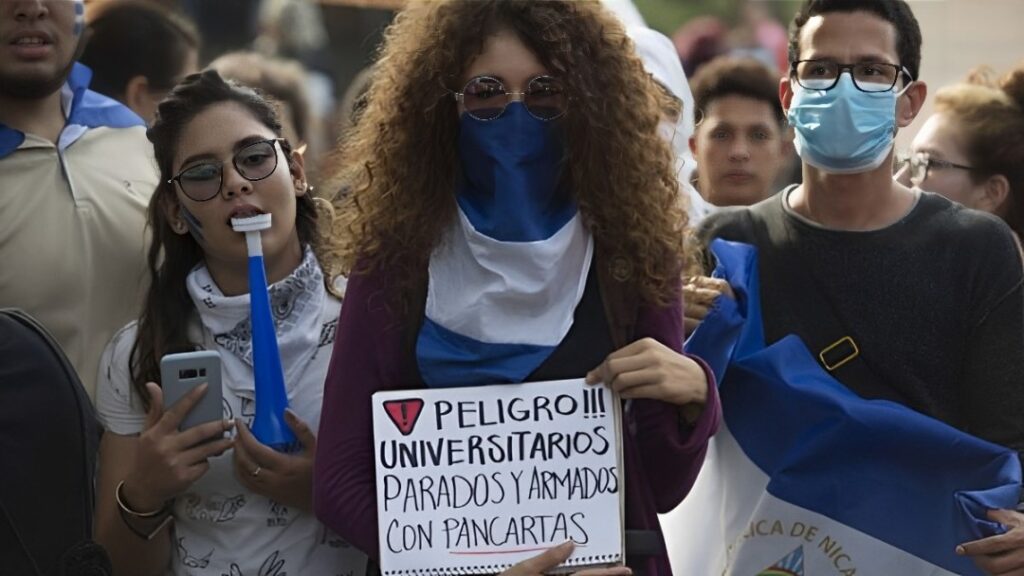
The young man paused his studies for the rest of the year and, the next year, when he tried to resume the semester, the university banned him from entering. “They didn’t give me many explanations, they just told me that I could no longer continue studying and they sent me back home,” remarks the former student, who joined the more than 150 university students who were restricted by the regime from studying for political reasons.
«In 2019 I planned to defend my thesis and then graduate, but the crisis changed that. I applied for papers at other universities, but I felt that the Sandinistas were watching me and that, at any moment, they could hurt me or my family, that’s why I preferred to dedicate myself ‘fully’ to work,” said the former student.
«And although I am no longer inside the university, the repression remains the same. When someone asks me why I stopped studying, I always end up saying some ‘dundera’ (nonsense), because if I say the real reason and the person listening to me is a Sandinista, that’s the end of it,” he noted.
The young man considers that the sociopolitical crisis remains latent, although he cannot speak publicly about it. He stated that “I continue in this job because if I leave it I will be left in the air, it is not easy to get hired these days.”
The former university student advised all young people, who are currently studying, to “take advantage of the opportunity you have. It is not easy to remain silent in the face of everything that happens every day, but it is worth trying for all those who could not.
Studies under repression
In another attack against academic freedom, the Ortega dictatorship undertook a series of confiscations of university campuses, which for two months functioned as trenches and a “bulletproof” shelter for protesters.
The most recent “robbery” was that of the Central American University (UCA), in August 2023. After more than sixty years of promoting and instilling critical thinking and Jesuit values, the State charged the house of higher education with the political crime of “terrorism.”
On the usurped facilities, the Nicaraguan regime erected the Casimiro Sotelo Montenegro National University, which began its first school year on January 15, after two failed attempts to inaugurate it in the last months of last year.
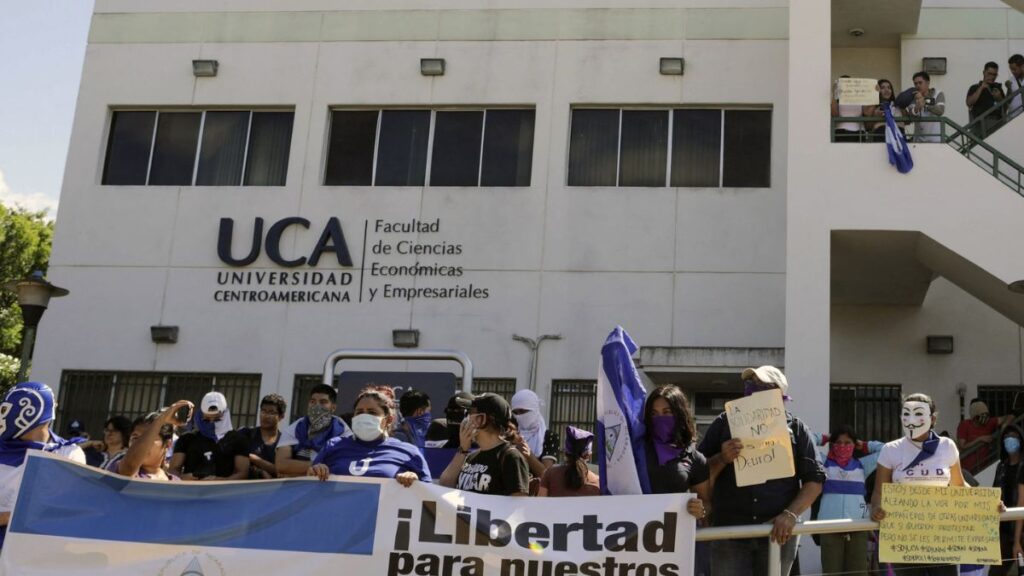

Several former UCA students had no choice but to continue their studies at the state university campus. However, one of them stated Article 66 that there is a “clear decline” in both education and teachers. “Every day that one goes to university, it feels like a wasted day, because there are no qualified teachers to teach the subjects,” lamented the young man.
Furthermore, since it began in April, the Casimiro Sotelo University joined the “rosary” of activities oriented by Ortega to downplay the importance of civic rebellion. «A colleague sent me a photo where several workers appeared together, I suppose it was to discuss activities on April 18. In Facebook “They uploaded a publication that said ‘we celebrate the joy of living in this Nicaragua of peace’ and a video of an activity where they started dancing and others who went out on a ‘walk for peace,'” he said.
The student indicated that within the university it is “common” to meet members of the Sandinista Youth (JS) and of the National Union of Students of Nicaragua (UNEN), since they are the “protagonists” of these types of official events. «We are not forced to participate as students. Of course, there is always a sympathetic colleague who goes, but it is not something in which students are involved,” the young man reiterated.
Politicized classes remain
Within public education centers, some teachers continue to be “political tools” of the Nicaraguan regime to indoctrinate and promote its official messages. This was a mechanism that the dictatorial couple had already used in previous years within primary and secondary schools, but now it has also ascended on a large scale in universities.
The young man commented that one of his teachers is a former militant of the Sandinista National Liberation Front (FSLN) and that she teaches a subject about which “she does not have enough knowledge.” The student highlighted that sometimes the teacher “‘loses track’ of the topic, she starts mentioning the things that the Sandinista party has achieved and tells anecdotes about when she participated in that movement. If we try to question her, she acquires a defensive position and it does not seem like she is a professor talking to her students.
Repeating the same hate speech as the vice-dictator, certain teachers make comments during their classes to attack the Nicaraguan opposition. The student said that the same teacher has openly expressed insults such as “traitors, they sell countries and puchitos” in a subject that has no relation to politics.
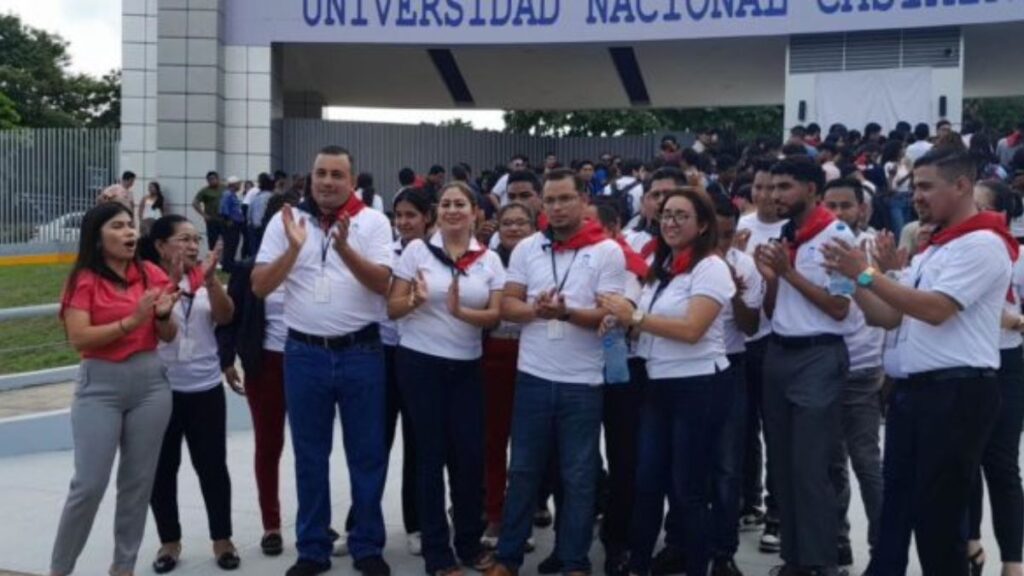

A student, from another of the universities that were confiscated by the government, commented that in her home of studies “they have tried to maintain regularity, but I have noticed that they are somewhat tense when talking about politics and they are evading it almost entirely. There is no concern on the part of the authorities, but there is a deathly silence. “They ignore any type of political form, due to the possible actions that the government may have against them.”
«The tendency in most classes at my university is silence, especially political topics, because they avoid them as if they were a plague or a taboo topic. “Professors, Faculty leaders and the administrators themselves prefer not to say anything about politics because they know that a poorly said word can lead to worse consequences,” said the young woman.
The student assured that “the politicization of classes has a lot to do with the teacher. I have a professor who works in a government institution and he, in a subtle way, gives clues to his pro-Sandinista political ideology. He is not something exaggerated, nor is he that noticeable. However, in certain behaviors you can see his empathy with Rosario Murillo and Daniel Ortega.
April for university students
Despite the constant repressive measures that the regime unleashes against the people, the fight and the meaning of the 2018 rebellion continues. «April is a month of mourning and struggle. It is a month which reminds you of all the injustices that exist in the country, which we cannot forget and that we must change in the future, but first we must clean up the State that exists now,” highlighted the student.
«I feel great helplessness due to the lack of spaces to demand justice for the students, who only for exercising their human right to protest and ask for justice were silenced by the government. It’s unfortunate and depressing how you know everything that happened, that until you could have lived face to face and you can’t say anything about it,” he added.
Likewise, the young woman expressed that “I live in fear of expressing myself in the slightest on the subject, because you don’t know who may be listening. As university students we know our right to express our opinion and raise our voices, but we are completely silenced and, in general, it is impossible to say that we are living in a completely free Nicaragua.
Related news: Enrique Sáenz: «April is a nightmare for Daniel Ortega and Rosario Murillo»
The university student maintained that the student community has «the sewn mouth in the face of so many crimes against humanity, which we are experiencing and we cannot do anything against it. We cannot protest, there is no one to denounce. We can only see them, complain, cry and not express it, because if we do, we can be the next in those groups of dead, imprisoned and exiled students.
This sixth anniversary of the April protests shows that the struggle of Nicaraguan university students is far from over. The student community remains firm in its search for justice and freedom, although the path to change remains difficult and full of challenges, the voices of the students demand and resist for a more just and democratic future for Nicaragua.
